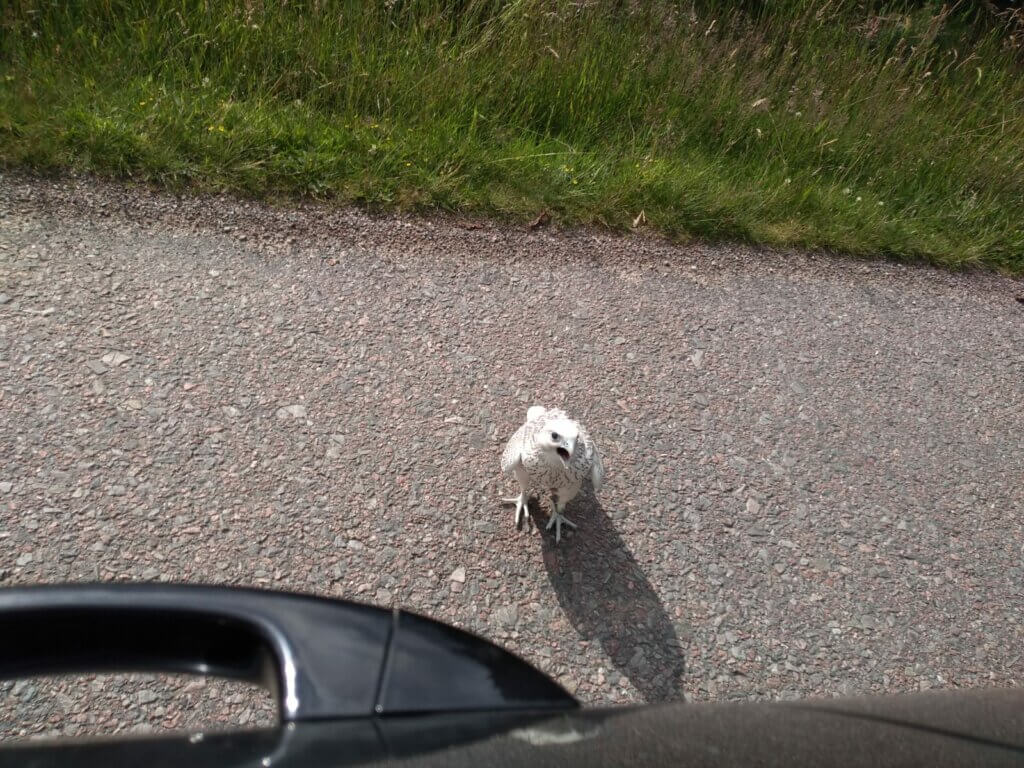
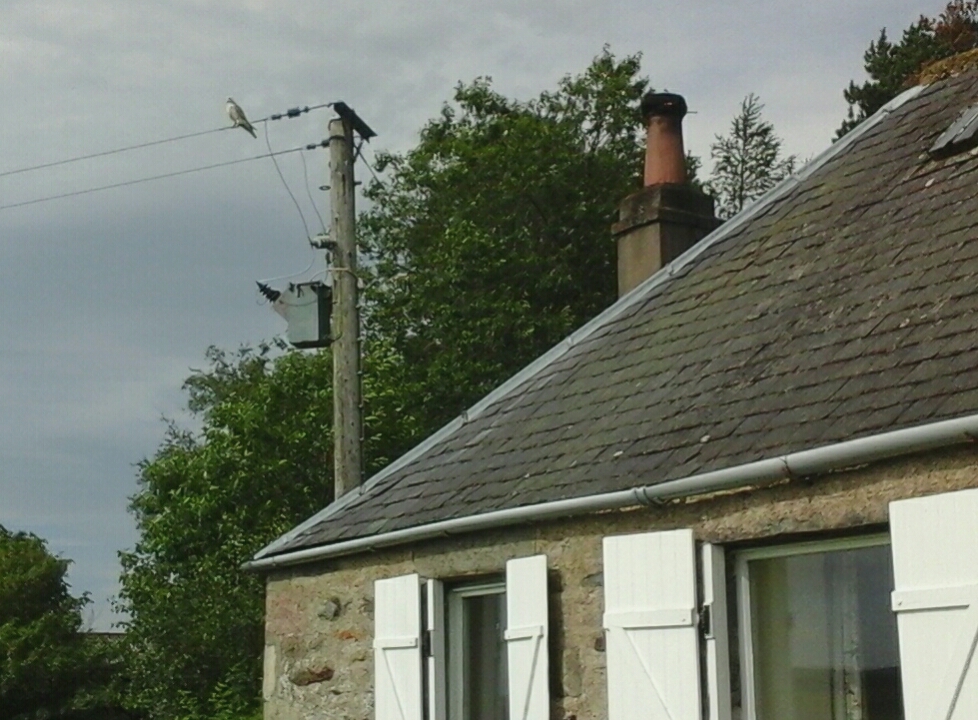
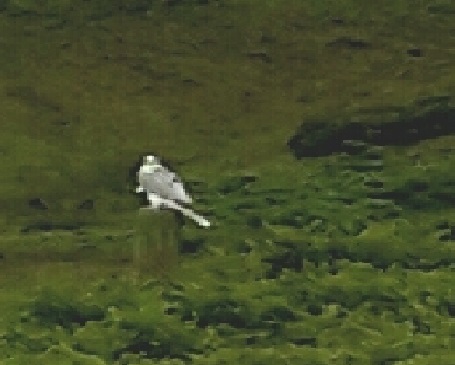
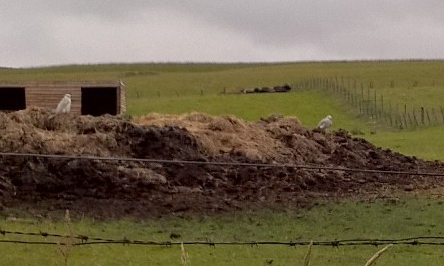
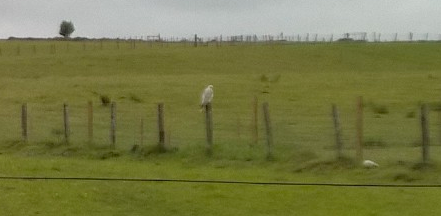
You might remember a series of blogs I’ve written about wild hacking of Gyr Falcons in two parts of Scotland. Last year SNH licensed the temporary release of 100 Gyr Falcons in Ayrshire and 150 in Moray in the period 1 June to September and with no more than 40 at a time in each locality.
Ruth Tingay and I attended a meeting with SNH back in January which was also attended by local residents and the licensees from Moray. It was clear that SNH was going to have a think about this issue but that there almost certainly would be further applications for licences this year. It has all gone rather quiet since then.
I gather that the local residents have not heard much from SNH since that meeting in January, despite asking, and are in the dark as to whether wild hacking has been licensed this year or whether it will be.
The coronavirus restrictions will have made it difficult for SNH to make visits to the areas for inspections etc. As I understand it, restrictions are still stricter in Scotland than England, and tomorrow sees a potential easing of those restrictions.
Readers of this blog will be interested to read that one of the licensees for removing Peregrines from the wild in England, Gary Wall (see his guest blog here on that subject) was formerly involved in establishing the falcon-breeding facility involved in wild hacking of Gyr Falcons in Moray.
It is also interesting, I think, to note that it appears that SNH has not been willing to license taking of Peregrine chicks from the wild for the purposes of falconry whereas Natural England has, and that SNH, after quite a lot of thought, decided that wild hacking of Gyr Falcons required a licence to take place whereas Natural England tell me that no licence is required in England (presumably outside of SPAs and SACs but maybe even there).
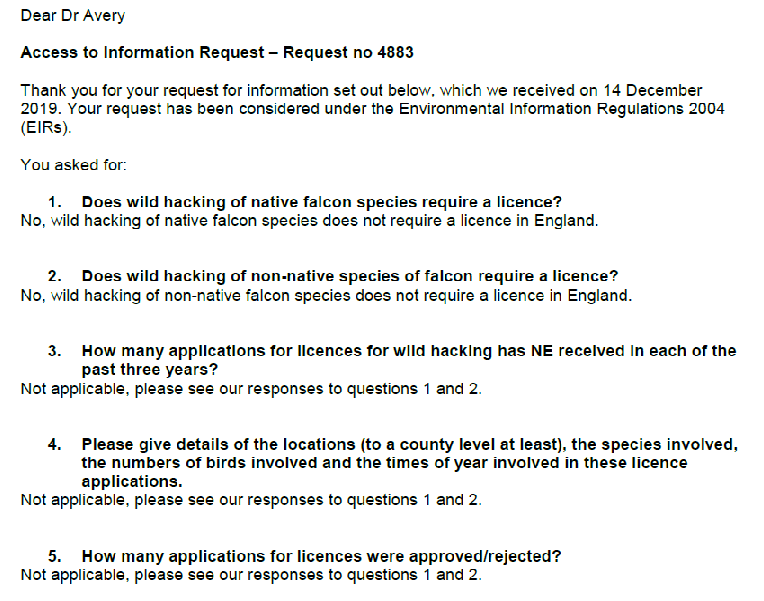
So wild hacking can take place in England, it seems, at any level – there’ll be 45 million of them soon…just like Pheasants.
I’ll be ‘phoning the SNH press office later this morning to see whether they can enlighten us all on what the current state of play is regarding wild hacking this year in Scotland.
[registration_form]
“Enlightened” by SNH! That’s the best one I have heard all lock down!
The plot thickens. I wonder where GW’s Peregrines are heading in Scotland then?
Those photos really make me feel sick.
Serious question. Our Goshawk population stems from falconers’ escapes. Is it possible that Gyrfalcons could escape and establish a breeding population?
I think it quite possible.
If birds lacking any migratory instinct, were to find themselves in North West Scotland, the Hebrides, or Central Highlands, i think it could be game on.
Whoopi.
Ian – it is possible but it seems very unlikely.
Ian – it is very possible and very likely but as cross breeders!
Some years back a Gyr-cross took up resident at Beachy Head, I did manage to photograph this bird, a stunning bird, concerns were expressed that this bird would inter-breed with the resident peregrines, so attempts at trying to catch this birds were sanctioned – all failed, so it was shot.
150 captive bred raptors are put out, free to fly over the summer months in a small glen. This will be the only time in their lives they will be free.
Some of these falcons have flown outwith their 2km flying zone – as far as Grantown, A9 and the RSPB reserve at Culbin forest on the coast. At least one had to be retrieved from 40 km away. SNH won’t allow them to fly in an NNR………If they see no problems with them affecting wildlife – why not?
I understand none of the hacked gyrfalcons were lost in 2019, and so there is no risk of breeding with native falcons or establishing a breeding gyrfalcon population. Also if the hacked falcons are for falconry, which I presume they are, then they will be flown free daily. So it’s wrong to say they will never be flown free again.
Paul – none was lost in 2019 and that is encouraging. Are you claiming that means that none will ever be lost?
There unlikely to be lost, all the falcons are fitted with a gps tracking system which is powered by the sun and will last for as long as the bird is hacked. All of the falcons that are hacked will be caught up in the hack tower about 3 weeks after there first day being put into the tower. The reason for this is the breeder of the falcons doesnt want them self hunting which makes it more difficult to catch in the hack tower, as all the falcons will be going to falconers who some have waited a long time to fly a wild hacked falcon. All the falcons are fed at the tower morning and night which ensure they stay around. The reason falcons are hacked is for the bird well being any bird that develops learning to fly out in the elements makes a better falconry bird than a falcon bred in a avairy. Any falcon that is wild hack will be for falconry which means they are flown or hunted daily during the hunting season.
Paul – these falcons seem to be for racing, as I understand things.
A large portion will go for racing in the gulf, theses bird are competing against eachover in individual races to see which falcon is fastest over 400 hundred metres. The also race them agaist remote control planes with a lure travelling behind which the falcon will catch after a long flight. These bird are in unbelievable health with all the facilities an athlete would have at there disposal. A few will be kept back for falconers in the uk of which there is a large demand for. Considering how many are hacked in england and none are lost i dont think its anything to be botherd about. Like i said befoe they may have lost a falcon 40 miles away but the got it back because all the falcons are fitted with gps.
Paul, It’s only a matter of time before a few escape. However, our problem is the pressure they are putting on our native birds. Try to picture what 40 raptors looks like flying round a small Scottish glen for 3 months, dive bombing and chasing our native birds. Peregrines who we now find out are hybrids/foreign species were flown too last year. This is not for falconry. If you think being put in the boot of a 4×4, then briefly flown in the desert for fun is freedom, I can only disagree. Gyr falcons belong in the artic! I don’t agree with any hybridisation, and it should not be allowed.
Shoved in a boot and flown for a little in the desert lol
Falconry in the gulf isnt just flying a falcon its part of there culture. They treat them better than most people treat there dog. Falcons dont have the same brain as us, a falcon wants 3 thing food, shelter and a safe place a falcons will not move if he has these. I can appreciate that 40 hacked falcons will chase other prey thats what a falcon does. A 6 weeks old that is learning to fly and play but the breeder will take keep a close eye on any bird getting to close to catching prey and catch it in the hack tower. This is reason why most falcons are out for 2 to 3 weeks only.
Considering that the vast majority of these (Arctic) birds will spend the remainder of their lives being flown in desert temperatures, far in excess of temperatures here in Scotland, I have to agree with Andy. That’s not freedom. All in the interest of sport and the name of tradition.
Andy gyr falcons dont just come from the artic we have wild gyr falcons that come to visit scotland every year during the warm summer months.
Yes, and eggs come from Tesco, Paul B.
Paul. I can’t think of anything more dismal than a raptor kept for falconry. They belong in the wild full stop.
The only reason there is a thriving population of Peregrines is because of falconers realising them back to the wild a ddt wiped them out.
Paul B
From Where? They do not breed here in the UK.